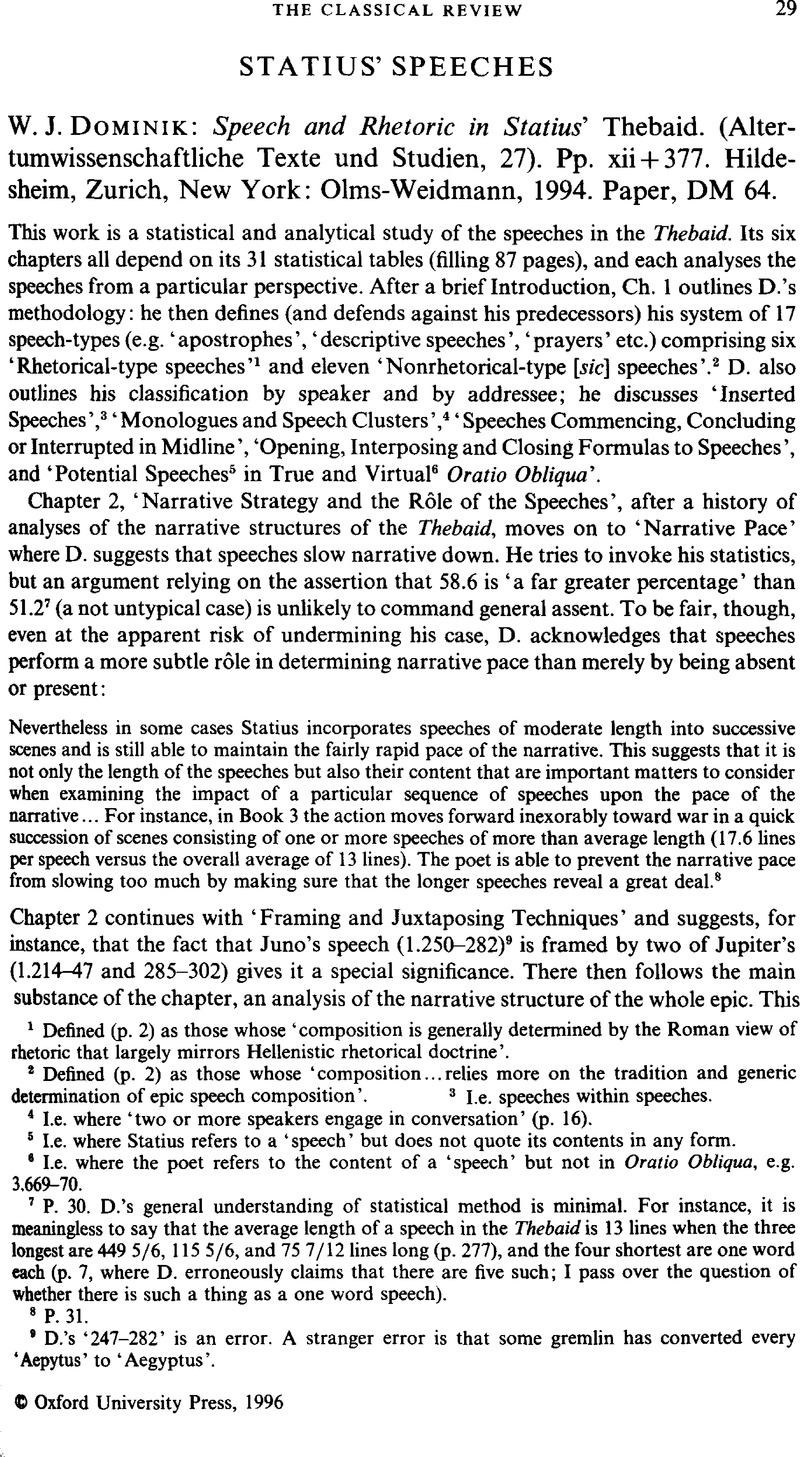No CrossRef data available.
Article contents
Statius' Speeches - W. J. Dominik: Speech and Rhetoric in Statius' Thebaid. (Altertumwissenschaftliche Texte und Studien, 27). Pp. xii+377. Hildesheim, Zurich, New York: Olms-Weidmann, 1994. Paper, DM 64.
Published online by Cambridge University Press: 16 February 2009
Abstract

- Type
- Reviews
- Information
- Copyright
- Copyright © The Classical Association 1996
References
1 Defined (p. 2) as those whose ‘composition is generally determined by the Roman view of rhetoric that largely mirrors Hellenistic rhetorical doctrine’
2 Defined (p. 2) as those whose ‘composition…relies more on the tradition and generic determination of epic speech composition’.
3 I.e. speeches within speeches.
4 I.e. where ‘two or more speakers engage in conversation’ (p. 16).
5 I.e. where Statius refers to a ‘speech’ but does not quote its contents in any form.
6 I.e. where the poet refers to the content of a ‘speech’ but not in Oratio Obliqua, e.g. 3.669–70.
7 P. 30. D.'s general understanding of statistical method is minimal. For instance, it is meaningless to say that the average length of a speech in the Thebaid is 13 lines when the three longest are 449 5/6, 115 5/6, and 75 7/12 lines long (p. 277), and the four shortest are one word each (p. 7, where D. erroneously claims that there are five such; I pass over the question of whether there is such a thing as a one word speech).
8 P. 31.
9 D.'s ‘247–282’ is an error. A stranger error is that some gremlin has converted every ‘Aepytus’ to ‘Aegyptus’.
10 1.1–4.645; 4.646–6.94; 7.1–12.819.
11 P. 41.
12 P. 210.
13 Pp. 245–6.
14 P. 247. Note that of those 20 lines only 9 end in -es or -is and that, of the four that end in -is, one has a short vowel.
15 P. 263.


